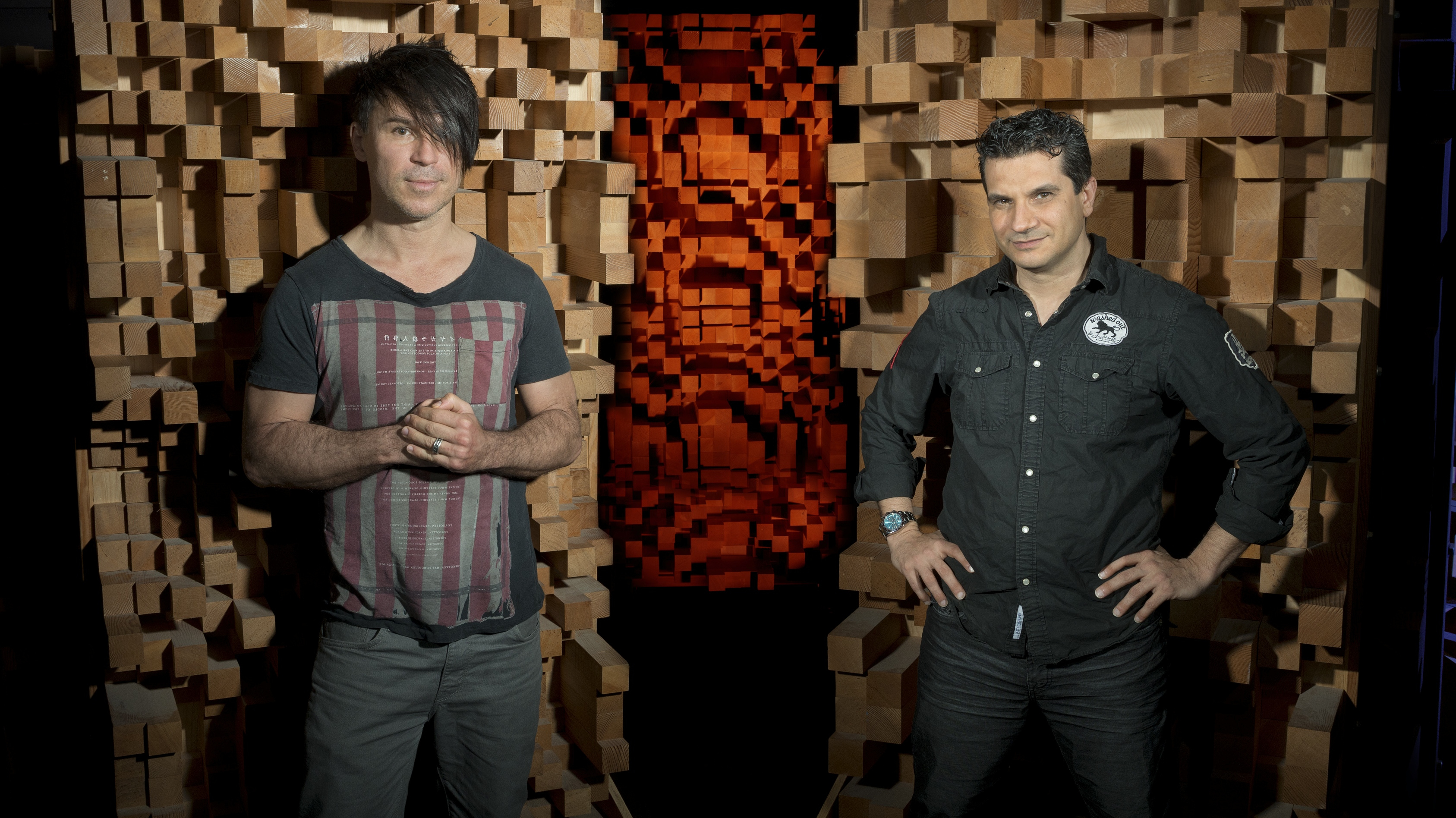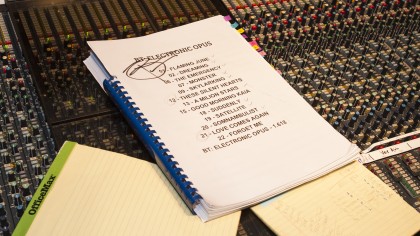
"It's the perfect meeting of the worlds. It's analog meets digital. It's nature and technology. It's tradition and future."
Videogame composer and world-record holder Tommy Tallarico was talking about a new album he's working on with EDM artist and pioneer BT.
We were sitting in the middle of an empty recording studio at Skywalker Sound and talking about this new cross-genre album - it's called Electronic Opus, by the way - but to someone just walking in who knows Tallarico's resume, the conversation could've easily been mistaken for Tallarico describing himself.
After spending some time with Tallarico, who's spent the last decade of his life working on his Video Games Live (VGL) concert series, which takes world-class orchestras from all over the world and has them perform the most widely recognized videogame tunes, and BT - an icon in his own right - the two seem like the perfect pair for the project.
Two worlds collide
Electronic Opus is a complete re-imagining of BT's most well-recognized songs from the past 20 years, performed with a live orchestra. It started as a kickstarter project in November 2014, and raised $250,000 (about £162,000, AU$320,000) in just over two weeks.
"Typically for a Kickstarter project the average pledge is around $40-$50. BT's was $120. That was the average [pledge]," Tallarico says.

The money they collected is going to two places: the record and a live concert set to take place in Miami, Florida on March 29.
Sign up for breaking news, reviews, opinion, top tech deals, and more.
This orchestral-meets-electronic mash-up show, believe it or not, will be number 321 for Tallarico.
"I actually own two world records. One is for the person who has worked on the most videogames in their lifetime - not just the music - but the most ever. [I've done] over 300. And the second world record is for the person who has performed the most symphony shows of the same show. We've done over 320 shows of the same traveling, touring symphony show. No one's ever done that."
Tallarico describes Electronic Opus as being in the same vein as VGL. It's a symphony for everybody he says, "not just rich, old white people."
Combining dance, electronic, pop and trance music - what you'd find in BT's repertoire - with a live symphony and thousands of dollars of electronics and special effects, the two have created a show that takes the whole performance, not just the music, to new heights.
"The incredible thing is that the visuals we're doing, from a technology standpoint, has never, ever been done before. Especially with a symphony."
Electronic Opus is Tallarico's latest project, and certainly one of his most involved, but his roots are in games.
Twenty years and over 300 games later, his career shows no signs of slowing down. Check out the interview below for his take on the games, the music and his ideology on breaking into an always-evolving industry:
TechRadar: What was it like creating Video Games Live?
Tommy Tallarico: Everybody thought I was crazy. They told me, "Look, people that listen to music and symphonies don't play videogames. And people who play videogames don't go to the symphony, so you're like totally screwed. No one's going to show up." But I took a risk. I put everything I had into it from my whole videogame career. I believed in it. They said, "At the Hollywood Bowl you'll be lucky if 500 people show up." Eleven thousand people showed up for that first show and all of sudden I wasn't so crazy anymore.
It's been incredible. We were on the cover of Symphony Magazine last year where they were saying that Video Games Live has helped to save symphonies around the world because we're out there ushering in a new generation of people.

Nick Pino is Managing Editor, TV and AV for TechRadar's sister site, Tom's Guide. Previously, he was the Senior Editor of Home Entertainment at TechRadar, covering TVs, headphones, speakers, video games, VR and streaming devices. He's also written for GamesRadar+, Official Xbox Magazine, PC Gamer and other outlets over the last decade, and he has a degree in computer science he's not using if anyone wants it.